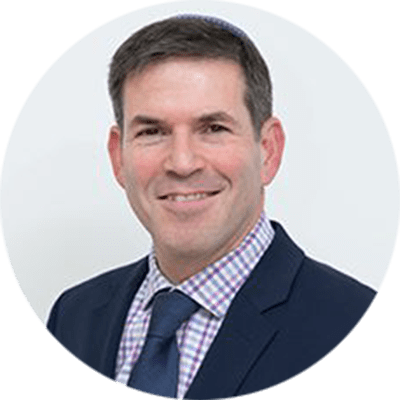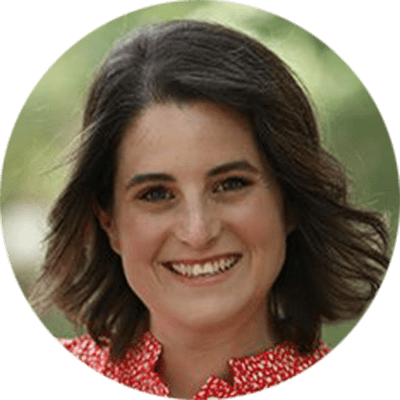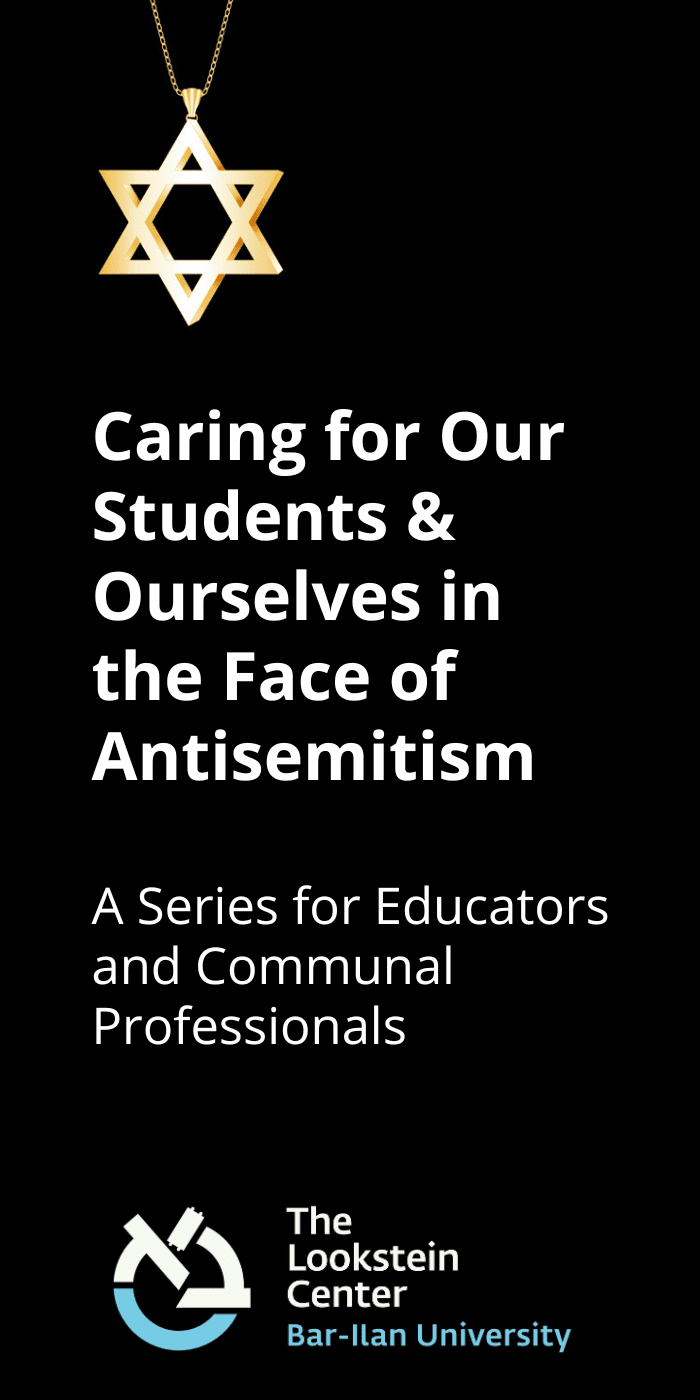Sourcing Talent From Within

Aharoni Carmel is the Founding CEO of TalentEducators and a veteran Head of School of educational institutions both in Israel and the US with over twenty years of experience in the field of education.



Alanna Kotler is a North American Regional Director at TalentEducators. Alanna has worked in the areas of teacher mentoring, curriculum implementation and professional development in private and public schools across North America.



Yael Harari is the COO at TalentEducators and has more than fifteen years of experience in the field of education, as a Teacher of Literature and Language and a Teacher Mentor.
The Great Resignation—masses of people leaving the workforce—has hit the field of Jewish education particularly hard. Even before the pandemic, organizations such as CASJE were working to understand the reasons behind the educator shortage, and since 2020, the shortage has intensified significantly. Aside from the persistent issue of relatively low salaries, at least three other factors can be seen as playing contributing roles.
- Health risks. Many schools prioritized in-person learning which put a strain on those educators who were immuno-compromised, leading older teachers and those with underlying conditions to resign. Teachers with children were also more likely to resign as they needed to be home with their children.
- Different skills. The pandemic demanded an entirely new skill-set of teachers, including distance and hybrid teaching, the use of online tools, and the ability to build relationships remotely.
- Increased demand. The pandemic generated significant increases in enrollment in private Jewish schools, necessitating adding classes and hiring more teachers.
At TalentEducators (TE), we have worked systematically to identify and recruit the hidden resource of those in the community who are not currently in full-time Judaic studies or Ivrit lead positions, including teaching assistants, general studies teachers, congregants, office managers, alumni, parents, and even board members. We see these people—who are a great match for the mission and the culture of the institution and do not need to relocate—as the perfect way to supplement the ranks in the Jewish studies classrooms.
Since these novice educators do not necessarily have the skills and knowledge to step immediately into teaching positions, and certainly not into lead roles, we partner with a variety of institutions to support both the educator and the schools in building and funding a tailored professional development plan for each individual. These plans include pedagogical mentoring, bootcamps, workshops, and more, based on the needs of the teacher and the school.
This process requires that the schools make a shift in mindset. Rather than looking for the right candidate to fill the position, they need to look for the candidate with the potential to fill the position, and to prepare to support the new hire—of course with outside help. This shift in mindset means that many of the resumes that would otherwise have been overlooked can now be considered, significantly expanding the pool of potential teachers.
The ongoing support is not only for the new educators, but for the school leaders as well. It is essential that the professional development and mentoring be monitored closely and adjusted as necessary, and supervisors need to be helped to adjust their interactions with this new type of teacher. Over the last three years, we have recruited fifty-two people who were already in the institution’s community but were not teaching in Judaic studies or Hebrew positions. Of those, forty-eight are still in those original positions, even through the pandemic and the Great Resignation.
As part of our monitoring, we conduct surveys twice a year. Our survey results reveal that these educators’ satisfaction in their positions as well as their administrators’ approval rate is higher than that of our other fellows with degrees in education. On a scale of 1-5, the employers rated their satisfaction with their new educators’ work at 4.3 when the new educator came from within the community, as opposed to an approval rate of 3.8 for those who were completely new to the educational institution. This metric alone shows the potential and commitment of those who are connected to the community, connected to their Jewish values, and want to contribute to their schools, synagogues, and JCCs.
This “internal” recruitment method addresses many of the challenges presented over the last few years:
- No need for relocation. Since these educators are local, there are no relocation costs for the new position. Further, the new hires are people who already feel a commitment to their local communities.
- Training for new skills. Every new teacher has a different set of needs—content knowledge, technology, pedagogy, etc. Personalized training programs allow for each novice teacher to get what he or she needs.
- Reduced onboarding hours. Part of the cost of bringing on new educators is onboarding. Much of onboarding is pedagogical, yet there are cultural pieces that are often equally important. For those within the community already, these onboarding elements are significantly reduced.
- Commitment to institutional culture. Since the educators are already part of the institution’s community, they are familiar with and have presumably bought into the institution’s culture and mission. This familiarity and buy-in leads to greater retention.
As the challenge to find educators continues to haunt Jewish institutions, expanding the potential for finding new staff is a valuable tool for filling in the gaps. Looking from within, identifying passionate individuals, and mentoring them appropriately may be one way to sustain our schools and those in the teaching profession for years to come.



Aharoni Carmel is the Founding CEO of TalentEducators and a veteran Head of School of educational institutions both in Israel and the US with over twenty years of experience in the field of education.



Alanna Kotler is the North American Regional Director at TalentEducators. Alanna has worked in the areas of teacher mentoring, curriculum implementation and professional development in private and public schools across North America.



Yael Harari is the COO at TalentEducators and has more than fifteen years of experience in the field of education, as a teacher of literature and language and a teacher mentor.
Reach 10,000 Jewish educational professionals. Advertise in the upcoming issue of Jewish Educational Leadership.




